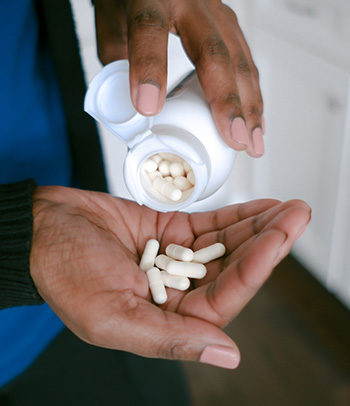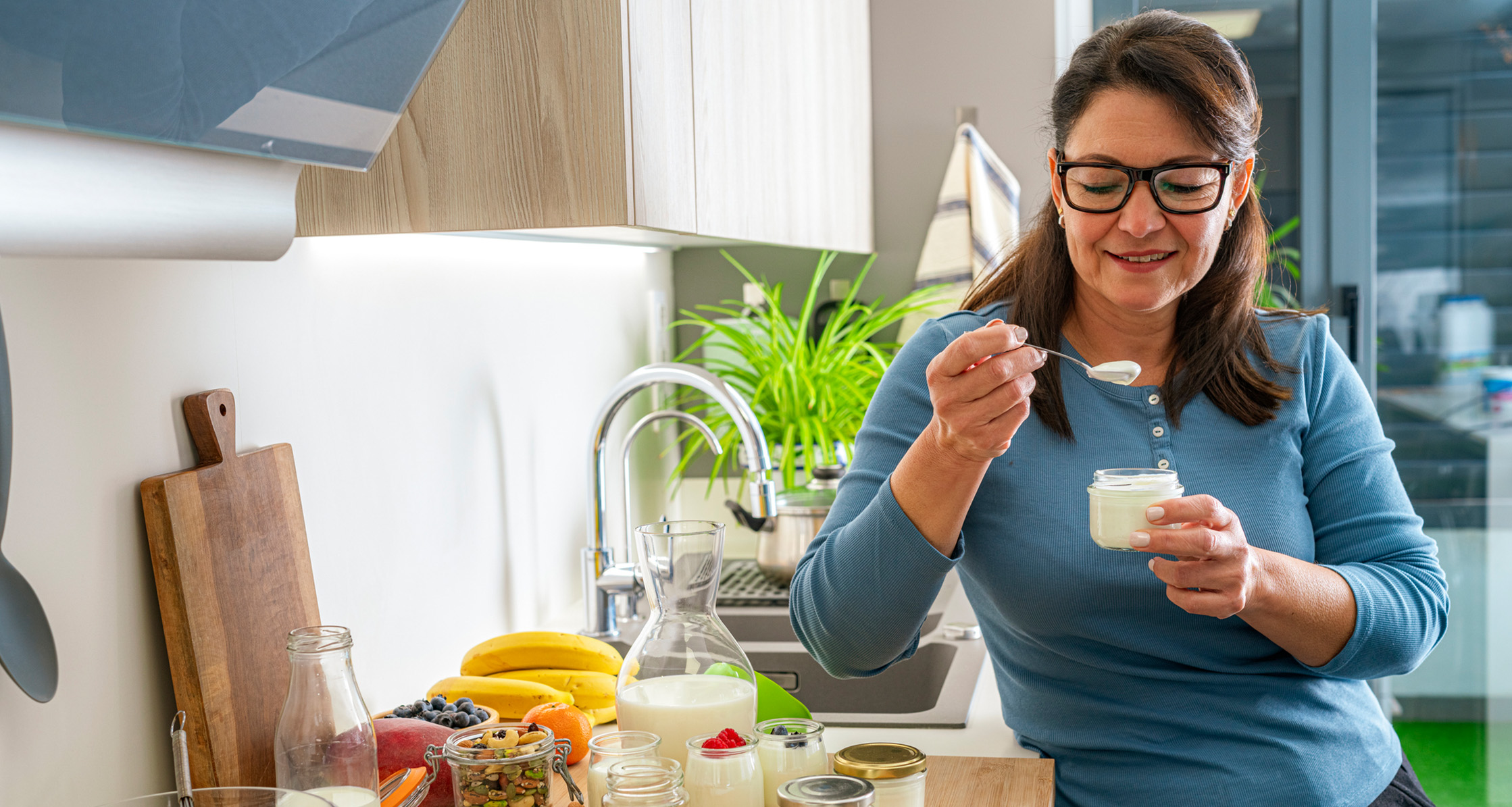Probiotics are live microorganisms, often referred to as “good bacteria,” that may play a role in establishing a healthy, balanced digestive system.
If you’ve been to the grocery store recently, you’ve probably seen products promoting probiotics, but how much do you know about them?
Probiotics are live microorganisms, often referred to as “good bacteria,” that may play a role in establishing a healthy, balanced digestive system. Learn more about probiotics, their potential health benefits, and how you can add more to your diet.
What Are Probiotics?
When we hear the word “bacteria,” we might think of germs that make us sick. However, our bodies are home to trillions of microorganisms that promote health. Some bacteria, like probiotics, help with digestion, influence our immune responses, and more. Probiotics are helpful microorganisms.
Probiotics are live bacteria and yeasts that live in your body, along with many others. Probiotic supplements, including food and health products, contribute to and strengthen the microbial populations in your gut and elsewhere in the body.
What Are the Health Benefits of Probiotics?
A healthy gut microbiome can boost your immunity, reduce inflammation, and maintain healthy digestion. Your health care provider may suggest taking probiotics after a recent illness or treatment that may have weakened your microbiome. Some people may take probiotics to maintain general wellness and keep their gut microbiome in balance.
A great deal of research has been done on probiotics, and many studies show promise for a variety of health purposes. However, more remains to be learned, such as which probiotics are most helpful for certain health conditions, as well as how much a person needs in order to see the benefits. Health benefits related to probiotics may include:
- Improved immune function
- Protection against harmful bacteria
- Improved digestion and nutrient absorption
- Improved bacterial balance after taking antibiotics
Some research suggests that probiotics may improve certain health conditions such as antibiotic-associated diarrhea, inflammatory bowel disease, vaginal and reproductive health, oral health, and eczema.
If you’re considering using probiotics, talk to your health care provider. You can discuss the healthiest way for you to get probiotics, which strands of probiotics may be most beneficial, how long you should use any particular product, and more.
How Can I Add More Probiotics to My Diet?
Probiotics are naturally present in some fermented foods, added to some food products, and available as dietary supplements. Dietary supplements aren’t regulated by the U.S. Food and Drug Administration. Talk to your health care provider before starting a probiotic supplement to see whether it may be right for you.
Foods that contain probiotics include:
- Yogurt
- Kefir
- Sauerkraut
- Kimchi
- Pickles
- Miso
- Tempeh
- Kombucha
- Sour cream
- Cottage cheese
- Aged cheese
You can use this food list to try to naturally increase the number of probiotics in your gut. For example, add yogurt to your smoothies or eat it for a snack with fresh fruit or granola on top. Steam and crumble tempeh to replace ground meat in your tacos or spaghetti sauce. Mix cottage cheese and fresh fruit for a healthy snack.
You can also try one of these healthy, probiotic-packed recipes:
- Blueberry Kombucha Spritzer
- Strawberry Banana Oatmeal Smoothie
- Asian Tempeh Lettuce Cups
- Banana Oatmeal Pancakes
These recipes also include important nutrients, such as fiber, potassium, and protein.
Food processing can sometimes destroy a food’s natural probiotics. For example, the heat used to can pickles may kill the bacteria, so it’s best to select pickles from the refrigerated foods section. The pasteurization of dairy products also uses heat to kill bacteria, but probiotics are often added back in later. A good rule of thumb is to check your food labels for “live and active cultures.”
Many military hospitals and clinics have nutrition clinics to help you achieve your nutrition goals. You can make an appointment with a registered dietician or attend nutrition classes to learn more about probiotics, a healthy gut, and the best nutrition choices for your overall health and wellness. The Department of Veterans Affairs (VA) also provides Veterans with access to registered dietician nutritionists, nutrition classes, healthy recipes, and more.
The more you know about healthy bacteria and how to keep your gut balanced, the readier you’ll be to take charge of your health and wellness!







